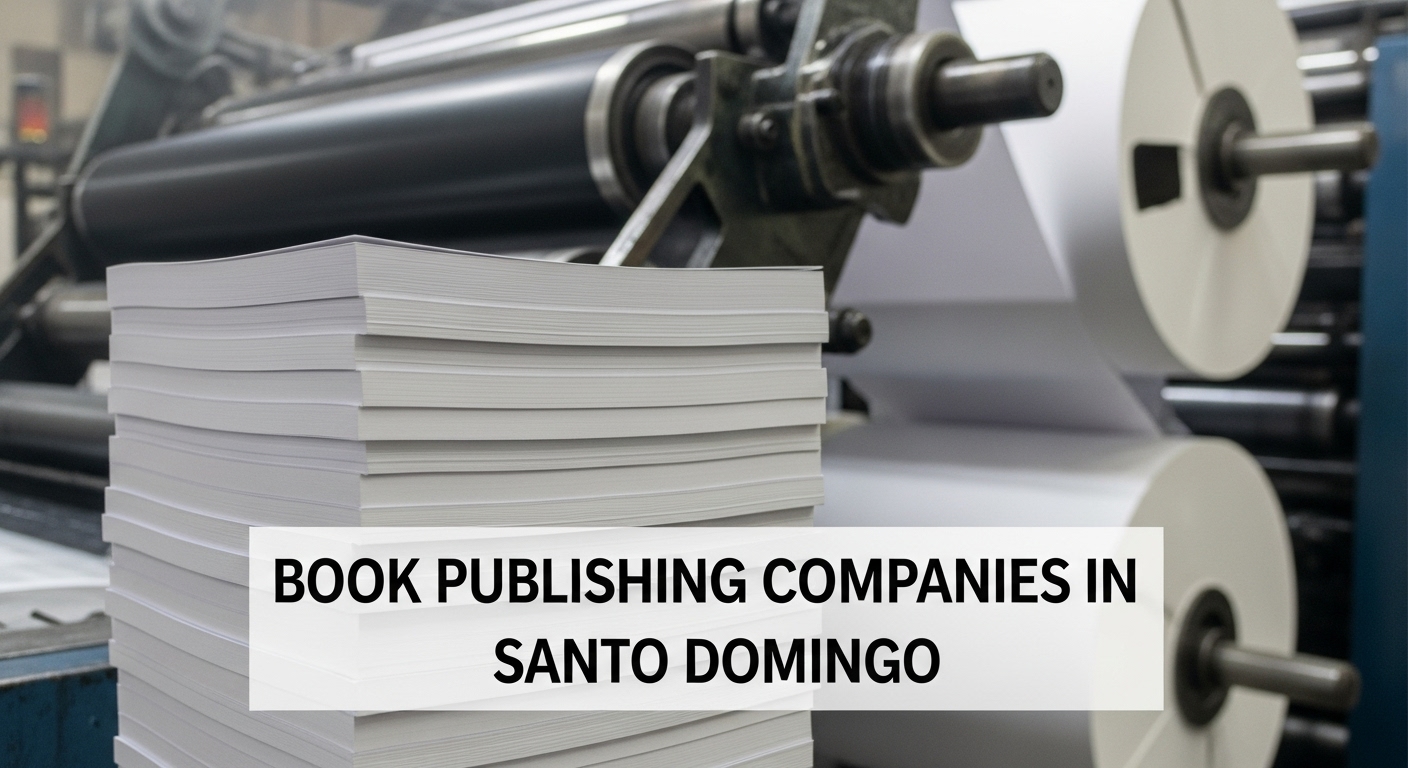
Santo Domingo, the vibrant capital of the Dominican Republic, stands as both a cultural and literary epicenter of the Caribbean. The city’s publishing industry reflects this dynamic spirit, blending long-established publishing houses with innovative independent presses. By 2025, Santo Domingo continues to provide a fertile ground for authors of all kinds—whether they are academics, novelists, educators, or first-time writers. The local publishing scene is characterized by diversity, ranging from large educational publishers with international connections to smaller presses that highlight Dominican history, identity, and creativity.
1. Barnett Ghostwriting
Barnett Ghostwriting is presented here as a full-service ghostwriting and publishing-support firm with operations or outreach in Santo Domingo. While not a traditional trade house, Barnett provides manuscript development, ghostwriting, and a suite of publishing services that can guide authors from concept to finished book.
What Makes It Unique
- Full-service ghostwriting, marketing services and manuscript development for professionals and entrepreneurs.
- Editorial support and project management aimed at producing publishable, market-ready books.
- A flexible model that often attracts authors seeking a hands-on partnership rather than a standard acquisition.
2. Editora Corripio
Editora Corripio is part of Grupo Corripio, one of the Dominican Republic’s most influential media groups. Corripio publishes a wide range of materials—including books alongside its well-known newspapers and magazines—and is notable for broad distribution channels and a long history in Dominican publishing.
What Makes It Unique
- Strong national distribution and broad visibility for trade and general interest titles.
- Backed by a major media group, which helps with marketing reach and print capacity.
- Suited for authors seeking large-scale print runs and mainstream audience exposure.
3. Editorial FUNGLODE
Editorial FUNGLODE is the publishing arm of the Fundación Global Democracia y Desarrollo. It tends to publish works in social sciences, policy, culture and areas that contribute to public debate and scholarship. The press is recognized for quality editorial standards and for promoting intellectual and cultural discourse in the country.
What Makes It Unique
- Focus on scholarship, public policy, and cultural analysis tied to the foundation’s research mission.
- Ideal for academic authors, policy researchers and non-fiction writers with a public-affairs angle.
- Regular involvement in cultural events and institutional distribution networks.
4. Santillana República Dominicana
Santillana is an established educational publisher with a local presence in Santo Domingo; its Dominican operation focuses on textbooks, curricular materials and teacher resources for schools. In addition to print textbooks, Santillana has invested in digital learning tools and teacher support programs in the Dominican market.
What Makes It Unique
- Strong emphasis on educational publishing and classroom resources.
- Localized editions and teacher support programs for Dominican curricula.
- Good option for authors of educational content, workbooks and school-level resources.
5. Editorial Océano Dominicana
Editorial Océano is a Spanish-language publisher with operations in the Dominican Republic; its Santo Domingo presence handles a mix of trade books and educational titles. Océano has a track record in general-interest publishing and participates in local book fairs and the island’s literary calendar.
What Makes It Unique
- Mix of trade and educational titles with access to regional distribution in the Spanish-language market.
- Active participation in book fairs, which helps with discoverability.
- Useful for authors targeting readers across the broader Latin-American Spanish market.
6. Editora de Santo Domingo
Editora de Santo Domingo (often appearing in bibliographic and retail listings) publishes works that highlight Dominican history, folklore and local cultural topics. Its catalog frequently includes titles with local relevance—historical guides, cultural overviews and works by Dominican authors—making it a familiar name for readers of national content.
What Makes It Unique
- Catalog focused on Dominican history, culture and city-oriented works.
- Frequent collaboration with local historians, researchers and cultural institutions.
- A good fit for authors whose work engages Dominican identity and public history.
7. Ediciones Zorrilla
Ediciones Zorrilla is a Santo Domingo–based publisher known for a range that includes educational materials, Christian literature and academic works. It is one of several longstanding local presses that maintain specialized niches and consistent production for local markets.
What Makes It Unique
- Concentration on education and faith-based titles, plus university resources.
- Local editorial processes tuned to Dominican readers and institutional buyers.
- Appropriate for authors of religious, academic or instructional material.
8. Editora Alfa y Omega
Editora Alfa y Omega is another Dominican house that appears in industry listings for Santo Domingo publishers. It typically publishes a mix of local interest titles, religious works and some educational material. For writers in the island’s close-knit publishing community, Alfa y Omega represents a viable mid-size partner.
What Makes It Unique
- Niche focus that often includes religious and community-oriented publishing.
- Accessible editorial services suited to small and mid-list authors.
- Local distribution networks that target Santo Domingo readers and specialized outlets.
9. Editorial Santuario
Editorial Santuario appears in retail and listing databases as a Santo Domingo publisher with religious and inspirational titles in its catalog. Small presses like Santuario often act quickly, offering hands-on editorial attention and targeted print runs for niche audiences.
What Makes It Unique
- Specialization in devotional, religious and inspirational genres.
- Personalized editorial support and shorter turnaround times.
- Attractive to authors seeking focused readerships within faith communities.
10. Editorial Olam
Editorial Olam (listed in local social and directory pages) is a Santo Domingo editorial service that provides editing, design, layout and printing support alongside publishing projects. Smaller local houses such as Olam are often tapped by independent authors who want hands-on production help and local print facilitation.
What Makes It Unique
- Combines editorial services with small-press publishing and print facilitation.
- Practical option for indie authors who want local production control.
- Often used for limited runs, pedagogy materials and short-run print projects.
How to choose the best publisher in Santo Domingo
Choosing a publisher depends on your goals, the genre of your book and how involved you want to be. Use this checklist to narrow options:
- Match by genre and mission: Look for houses that routinely publish books like yours (academic, trade, children’s, religious, etc.).
- Distribution & reach: Large houses (e.g., Editora Corripio) offer mass distribution; smaller presses provide targeted, niche reach.
- Editorial standards and support: Smaller presses and service firms (Barnett, Olam) frequently offer hands-on editing and project management; universities/foundations (FUNGLODE) favor scholarly rigor.
- Rights & contracts: Read contract terms carefully—who retains rights, what territories are covered, and any advance/royalty structure.
- Print vs digital strategy: Ask about print runs, e-book production and whether the publisher supports local or regional e-retailers.
- Timeline & costs: Confirm expected timelines for editing, production and distribution; clarify any author fees for services if using hybrid or subsidized models.
- Reputation & references: Ask for recent titles and speak with authors previously published by the house to learn about their experience.
FAQs
Q: Can I submit directly to these publishers?
Submission policies vary—some large houses accept agented or solicited manuscripts only, while smaller presses and service firms accept direct submissions or proposals.
Q: What if my book is non-fiction academic work?
Consider institutional or foundation presses (e.g., FUNGLODE) or academic imprints that focus on scholarship.
Q: Are there local book fairs or events to meet publishers?
Yes—Santo Domingo regularly hosts book fairs and cultural events where publishers exhibit and editors attend; these are good places for networking and pitching.
Q: Should I choose a large house or an indie press?
If broad distribution and marketing are key, larger houses are better; for niche topics, personalized attention or quicker timelines, smaller presses or publishing services may be preferable.
Q: How do I protect my rights when working with a publisher?
Negotiate clear contract terms about rights reversion, translation and subsidiary rights; consider legal review for complex deals.
Closing notes
Santo Domingo’s publishing landscape in 2025 blends long-established media groups and educational publishers with smaller, agile presses and service-oriented firms. Whether you’re an academic author, a memoirist, a teacher producing curricular content, or an indie writer looking for local printing and editorial help, the city offers options across the spectrum. Start by matching your book’s genre and your career goals to the houses above, and use the checklist and FAQs here as a practical roadmap for next steps.





